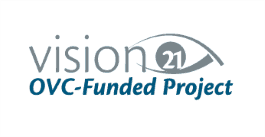Victim Researcher Profile

Heather L. McCauley
STATE
Michigan
INSTITUTION
Michigan State University
TITLE
Assistant Professor, School of Social Work
EDUCATION
ScD
DISCIPLINE
Social Epidemiology
YEARS OF EXPERIENCE
11-20 years
BIO
Dr. Heather L. McCauley, ScD is a social epidemiologist and Assistant Professor in the Michigan State University School of Social Work. Dr. McCauley’s community-engaged, mixed methods research focuses on the social and structural determinants of sexual violence and sexual violence prevention. She centers underrepresented and marginalized (e.g. LGBTQ) populations in her work to ultimately reduce health disparities. She has authored or co-authored 75 journal articles and book chapters on these topics in outlets spanning public health, medicine, psychology, sociology, and human development disciplines. At the national level, she is an Associate Editor of the American Psychological Association’s multidisciplinary research journal Psychology of Violence. She also serves on grant review panels for the National Institute of Justice and the National Institutes of Health. Dr. McCauley earned her graduate degrees in social epidemiology and global health from Harvard University.
VICTIMIZATION FOCUS
Campus Sexual Assault, Child Trafficking and Exploitation, Dating Violence (Teen), Domestic and Family Violence, Drug-Related Victimization, Sexual Abuse or Violence (other than campus sexual assault), Trafficking in Persons, Sexual harassment
SPECIAL POPULATIONS
Formerly incarcerated victims, LGBTQ victims, Men and boys of color, Military personnel victims, Rural victims, Victims of color
RESEARCH EXPERTISE
Action research, Community-based participatory research, Data collection, Descriptive studies, Needs assessment, Program evaluation, Qualitative studies, Quantitative studies, Quasi-experimental studies, Randomized controlled trial, Training and/or technical assistance
VICTIM RESEARCH EXPERIENCE
Action research, Community-based participatory research, Data collection, Descriptive studies, Needs assessment, Program evaluation, Qualitative studies, Quantitative studies, Quasi-experimental studies, Randomized controlled trial, Training and/or technical assistance
NEXT PROFILE: Melanie Otis  Click here for the next researcher profile
Click here for the next researcher profile

FOLLOW US